David R. Michael's Blog, page 41
December 6, 2010
A Story of Reese & Sam
Note: This is the first story I wrote about Reese & Sam, while I was still exploring them as characters. This story is non-canonical with The Summoning Fire. That is, if it did happen, it might not have gone down exactly this way. And you'll notice the Old Man, and their relationship with him, is still evolving. Enjoy!

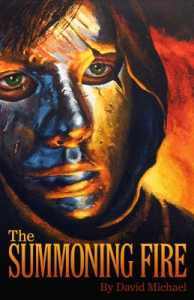 Reese Makes a Deal
Reese Makes a Dealby David Michael
There was only one way to kill a vampire quickly: grind it into hamburger. Reese did the next best thing. She emptied the magazine of her 12 gauge pump-action shotgun into the thing's chest and head.
She paused only long enough to take two deep, gasping breaths. Then she stepped back to reload, pushing shells into the tube magazine and looking over at Sam to see how the other woman was doing.
Sam sat, leaning against the wall where the vampire had thrown her, looking dazed.
"You still with me?" Reese asked.
Sam shook her head, blinked a few times. "Maybe," she said.
Reese pumped a shell into the chamber, pushed another shell into the magazine to keep it full. Then she let the shotgun dangle from its shoulder strap as she picked up her nine millimeter semi-auto from the floor where she had dropped it.
She popped out the clip, counted only six rounds. She pushed the clip into her pocket and pulled out a full one to replace it. Then she unscrewed the silencer from the barrel, put it away as well. After nine shots, it was spent. And after five blasts from the shotgun, there wasn't anyone within a quarter mile who didn't know she and Sam were around.
Before Reese took up the shotgun she had considered herself a finesse operator. Surgical in her precision, if she did say so herself. She only accepted the vintage Winchester Model 12 because the Old Man insisted. But the old gun had taught her the true meaning of "one shot, one kill." And it had just saved her cute little ass for about the fifth time.
Five shots from the Glock 17 nine mil had barely slowed down the vampire. The same number from the shotgun had reduced it to goo.
Reese put the pistol back in her waistband and hefted the shotgun. Even with the stock cut down to a pistol grip and the barrel sawed off to the same length as the tube magazine, the Model 12 was a bulky weapon. The Old Man gave it to her to do a job. Not this job. And maybe he wanted his toy back. But he would have to pry it from her cold, dead fingers. Something he was probably looking forward to.
"A family heirloom," the Old Man had called it. "And the best damn shotgun ever made."
Maybe, someday, Reese would finish that other job. And/or tell the Old Man she was through working for him. Or maybe he would catch up with them and kill her and Sam slowly and painfully as a form of discipline before he re-animated them and sent them out again.
Sam stood up and collected her toadsticker. Another toy from the Old Man's arsenal, even older than the Model 12, the katana seemed to have been forged from pure midnight. Its black blade reflected no light and its edge was all but invisible. It had pierced the vampire's chest cavity effortlessly. And if the beast had had a pumping heart, that might've mattered.
"Check your clips," Reese said.
"I haven't fired either gun," Sam replied. She didn't sheath the sword, just stood there looking dangerous. And sexy. "I was under the impression that we were trying to be sneaky."
"Yeah, well. Sneaky wasn't working. How's your head?" Reese gave Sam a thorough visual scan, looking for injuries. And, well, just looking.
"Still attached. How do I look?"
Reese didn't answer. Sam knew she looked good. Instead Reese turned to consider the door that led down to the cellar. The little girl, Anya, must be down there. The rest of the building was–now–unoccupied by the living. And the dead things they had encountered were all dead once again. "You want to try to sneak in?"
"I'm pretty sure they know we're here."
"So, blast the door down and charge in?"
Sam sighed. "Maybe there's a middle ground?"
"How's this?" Reese asked. With the shotgun's pistol grip in her right hand, barrel level, she stepped to the side of the door.
Sam took a sliding step to get out of line with the door as Reese opened it with her left hand.
The door swung open smoothly, silently.
Nothing came out of the door at them for a full minute.
Reese nodded at Sam, and the other woman crouched down in front of Reese and peeked a look, her head at the level of Reese's knees.
Sam sighed again and stood up. "As I expected, they know we're here."
"And…?"
Sam flexed her arms, legs and neck to limber them, the katana moving with her like a part of her body. "And so," she said when she had finished, "we might as well just go down and talk to them." With that she walked through the door.
Reese hefted the shotgun in both hands now, ready to start pumping out lead the way only a Model 12 could, and followed Sam.
The bad guys in the cellar waited for them. The big one in front was a real ogre, standing at least eight feet tall, nude, hairy all over and dangling enough manhood to frighten off a choir of angels–or convince them to fall. He also dangled Anya, clutching the little girl by her hair, holding her in front of him like a small, white, innocent shield. His other hand held a curved sword that probably weighed as much as Reese. The point of the sword hovered near Anya's neck. Anya didn't seem to be conscious, but she didn't seem to be harmed either.
Behind the big guy, arranged in a loose vee, were smaller, human-sized former humans. At least a couple of them showed the traits of vampirism. And the rest looked even meaner.
"How many," the big one growled, his deep chest adding near-sub-sonic resonance, "of my children have you killed?"
Reese shrugged. "How many were upstairs?"
The big one growled again, this time without words. The point of the sword moved closer to Anya's neck.
Sam shifted her stance, and Reese did too, pointing the shotgun at the nearest of the "children", who were also adopting battle-ready postures.
Reese's mind raced. At an optimistic four shots per vampire, she figured she had enough ammunition for about half the henchmen. And now that Sam knew they were fighting vampires in addition to other unpleasantness, she could use that katana to better effect.
But–and there were some serious "buts" to consider.
Reese doubted the crowd of bad guys would let her take the time to reload the shotgun. The Glock had proven only marginally useful against the vampire before and would likely only piss off the big guy even more than he already was. And Sam had to get up close and personal to use that sword. None of these circumstance weighed in their favor.
"Maybe," Reese said, licking her suddenly dry lips, "we can make a deal."
Slight surprise showed on the ogre's big face. "A deal?"
"Sure," Reese said, wondering what in the hell she or Sam had to offer that might be even tempting. "A deal. We just want the girl."
The ogre considered this for a few seconds. "What do you have that I might want?"
Sam cast a glance over her shoulder at Reese, obviously wondering the same thing.
For a brief instant, Reese considered offering Sam's sword. That had to be worth a fortune. Several fortunes. For a briefer instant, she thought about offering the Model 12. Not as pricey as the sword, nor as rare, but still a damn fine weapon. But giving up their weapons seemed stupid. And suicidal. Besides, the two of them had both grown attached to the Old Man's toys.
For a somewhat longer instant, Reese wished the Old Man was here. So far gone into the Pits of Hell that he had grown both horns and a tail, the Old Man could have eaten the ogre for lunch–and kept the leftovers for sandwiches later in the week. Except Reese and Sam had crossed the Old Man and he would focus on them first, ogre second, probably munching on little Anya as he considered how to best punish the lot of them.
"Well?" the ogre rumbled.
"Keep your shirt on," Reese said. "I'm taking inventory."
The ogre growled, causing the glass in the cellar windows to rattle.
Then Reese remembered the badge, or whatever it was. Against Sam's better judgment, Reese had pried the badge out of a dead man's flesh and been carrying it around ever since. She didn't know what the symbol on the octagonal hunk of metal meant, with its sinuous tendrils and three burning eyes, but it seemed important. She had glimpsed a similar symbol once, on some papers on the Old Man's desk.
Maybe it was just a hunk of metal with a fancy symbol. Maybe it was more. Reese had no way to know, and hadn't had time in the ensuing weeks to study it. And maybe, just maybe, she could con this big ogre into swapping it for the girl.
"OK," Reese said. "I'm going to reach into my jacket–very slowly–with my left hand. And I'm going to pull out something I think you're going to want."
The ogre, his henchmen, and Sam all tensed as Reese took the badge from her pocket. It seemed heavier now, and colder.
When she had the badge out, she turned it around slowly to show the symbol.
The ogre took a very audible breath, and his henchmen openly stared.
"Deal," the ogre said. He tossed Anya at Sam, who had to drop her sword to catch the little girl without impaling her. The edge of the sword dug out a groove in the floor.
Reese, trying not to wonder what she had just agreed to give away, waited until Sam held the girl in a fireman's carry and picked up her sword. Then Reese stepped in front of Sam. She flung the badge with a flick of her wrist, like a Frisbee. The ogre caught it easily.
"Go," Reese said. "Now."
They backed up the stairs and out of the cellar. Reese watched the ogre open his huge hand, with the badge resting in his palm. With his other hand he seemed to be making gestures as he muttered in a low baritone. His henchmen no longer looked at Sam and Reese. They gathered around the ogre.
Sam and Reese stopped worrying about pursuit and ran as fast as they could back to their "borrowed" car. They laid Anya in the back seat and roared away into the night.
"I can't believe you made a deal with those … things," Sam said.
Reese shrugged. "We were outmatched. I want to go down swinging, just like you," she added, "but not over someone else's kid. This was just a job."
"I can't believe they traded her for that badge."
"Yeah," Reese said. "I wonder what it was?"
"I wonder what else we could've got for it."
"You're such a mercenary bitch," Reese said. She reached over and squeezed Sam's leg. "That's what I love about you."
Sam put her hand on Reese's.
They drove the rest of the way back to Anya's worried, waiting parents in silence. Then they took their money and got the hell out of town, before Hell could catch up with them there.
Published on December 06, 2010 07:13
Writing Progress Report
Writing progress report for the week starting Monday, November 29, 2010.
Writing Project
Words
Monday
Tuesday
Gunwitch
515
Wednesday
Gunwitch
26
Thursday
Gunwitch
220
Friday
Saturday
Sunday
Edited "Reese Makes a Deal".
Total
761
Marketing/Submission
Monday
Announced Horse Girl on Guns & Magic and FaceBook. And Joe Indie.
Created Horse Girl promo threads on KB and MR. And NB.
Submitted TSF for review to JuniperGrove.
Updated blog Bookstore and FB Books pages.
Submitted HG for review to amyriadofbooks, amomentwithmystee, armsofasister, kbgbabbles, bob-lostintime, beckysbookreviews, blkosinersbookblog, bookbabe, booksiesblog, bookspeakblog.
Tuesday
Submitted Horse Girl to the Oklahoma Center for the Book.
Updated NBSS promo threads on KB and MR.
Submitted HG for review to chickwithbooks, theresabook, confessionsofabookworm, crazycraftercatlady.
Wednesday
Sent "Insanity" to first readers.
Submitted HG for review to motherlode, debbiesworldofbooks,
Posted HG excerpt to B&R forums.
Thursday
Friday
Submitted HG for review to murphyslibrary, blackrosereviews, magicfaeriesparanormalreview, dcmetroreader, mycozybooknook, mylifeinnotsomanywords, myoverstuffedbookshelf, mywordsateme, okbolover, podpeep, readerrecommended, readingbeforebed, shescribes, silversreviews, snowdropdreams
Posted a preview of Horse Girl on CreateSpace.
Saturday
Sunday
Submitted HG for review to thebookreview, thebooksmugglers, thebooktree, thecreativewell, thephantomparagrapher, thingssheread, tictoc, tributebooksreviews, utterrandomonium, whatsyourstory, wvstitcher, ebookaddict, kindlenation
Reading List
The Letter, the Witch and the Ring by John Bellairs.
Published on December 06, 2010 07:12
December 5, 2010
THE SUMMONING FIRE Reviewed at Bookingly Yours
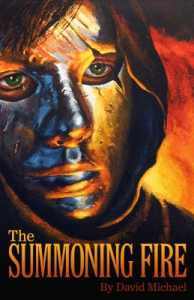
The Summoning Fire reviewed at Bookingly Yours.
It is about a place called Hell on Earth where hell's creatures mix with humans. It's like a tourist destination, humans can meet with demons, undead, and other creatures BUT some aren't lucky to make it back home. That's the risk they have to take if they want to visit the place. I liked the plot, it was very original. A good horror book, and I think this would be good to be adapted on the big screen. I will definitely watch it.
Read the whole review here…
-David
Published on December 05, 2010 20:40
Bang Red Face on Desk
Somehow I managed to release The Girl Who Ran With Horses with multiple misspellings. It's embarrassing (and "embarrassed" is one of the words I misspelled).
I have updated all of the ebook versions, though it might take a day or two for the changes to percolate through the various systems. I also updated the printed book. That will definitely take a day, at least.
-David
Published on December 05, 2010 11:59
December 4, 2010
THE GIRL WHO RAN WITH HORSES Gets 5 Stars from Book Babe!
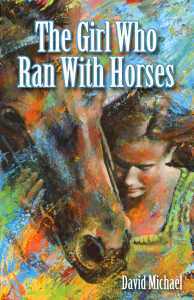
Book Babe gives The Girl Who Ran With Horses 5/5 Stars!
I'm very impressed with the way a male author has written so well about a thirteen year old girl. Good job, Mr. Michael! I also like the different topics he manages to tackle in this story. Alcoholism, grief, abandonment, teen love, and forgiveness…
I really enjoyed this. I was able to sympathize and understand the heroine even when I felt she was in the wrong and I was moved by the situations.
Read the whole review here…
-David
Published on December 04, 2010 14:48
December 3, 2010
One Reason I Wrote The Girl Who Ran With Horses
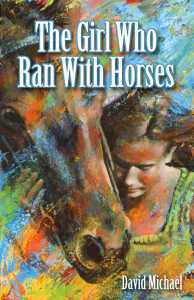
In late 2005, as I was finishing up my first (and still unpublished) novel, Threads, my niece, Heather, told me that my next book should be "about a grl and she is a brl rcr and she iz jus like ME".
Over the next few weeks, Heather and I IM-ed and swapped emails as she told me the names of the characters and horses, and their family members. I even made her draw a blueprint of the family ranch house.
 Thus armed, I mapped out the story and created a rough outline.
Thus armed, I mapped out the story and created a rough outline.And then did nothing with it. I can be silly that way sometimes.
In my defense, the main reason I didn't launch right away into Horse Girl (as I called the book, even though I came up with the final name almost immediately; I still call it that) was that I came up with another project: A Short Story a Day (yes, I know, I talk about ASSAD a lot; it was a big deal for me).
Then, late in 2006, as part of A Short Story a Day and as my first ever NaNoWriMo participation, I wrote The Summoning Fire.
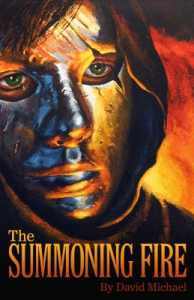
The Summoning Fire is, if I do say so myself, dark. Very dark. And I wrote it, quite literally, all at once. That made for a very intense November.
By the time I reached "The End" in The Summoning Fire I needed something bright and cheery. Anything bright and cheery. Or, if not exactly bright and cheery, something that didn't involve a lot of brutal, hard-assed characters doing a lot of brutal, hard-ass things to each other. I love Reese. I love my book about Reese. But it was very emotionally draining to write her story.
And that's when I looked at Horse Girl's outline I had drawn up and knew I should write that book. ASAP.
Horse Girl has its less-than-bright-and-cheery aspects (most good stories do). Several of them in fact (though fewer than my original outline; and, just to mention it, most of those less-than-sunny story points sprang from the imagination of the original Horse Girl Herself, Heather). But The Girl Who Ran With Horses is full-on daylight and bright-noon sunshine compared to The Summoning Fire.
And that's one of the reasons I wrote the book: I needed some full-on daylight.

-David
Published on December 03, 2010 15:16
December 1, 2010
Vision First, Then Audience
A few days ago, my friend (and most excellent chef) Ian Salavon, asked a question in a comment to my post "How I Built The Summoning Fire":
"How does an artist balance his/her personal desires and input from the people he/she is trying to reach? I mean, any artist should consider the audience. If they don't, there's no point in making the art at all. Keep it in your head. It's already perfect there, unsubjected to the clumsy real world. But, that doesn't mean the artist should only do what the audience says. If that were the case, literally, anyone could be an artist."
I responded with: Every artist *begins* with the assumption that there is an audience for their work. Otherwise they wouldn't even start the work. But maybe you don't figure out who/what the audience is until you finish the story.
In short, I'm all for Vision First, Then Audience.
Vision First, Then Audience fits well with Heinlein's Rules of Writing:
1. You must write.
2. You must finish what you write.
3. You must not rewrite unless to editorial demand.
4. You must mail your work to someone who will buy it.
5. You must keep your story in the mail until someone buys it.
From the standpoint of Heinlein's Rules of Writing, you don't even think about your audience until you start trying to find that audience in #4.
A new piece has no audience. Not really. There's just you. That is, until you put it out there. And it's not like there's any risk in looking for the audience after the fact, either. (That's how I found out The Summoning Fire was horror. I thought I was writing an urban fantasy. "He shows no restraint" was a comment from a friend of my wife. Obviously *he* wasn't the audience.
 )
)I think Dean Wesley Smith covers this ground even better in his post today, "Dare to be Bad":
"…there are no real repercussions of mailing a story that fails. No editor reads anything that doesn't work and no editor will remember your name if your story doesn't work. Most of us (editors) have trouble remembering the names of the authors and the stories we have bought over the years, let alone the stories we glanced at and form rejected.
"And there are no real risks in putting a story up on Amazon and Pubit and Smashwords yourself. If the story sucks, if your sample is bad, or your cover sucks, or your blurb wouldn't draw flys, no one will read it or buy it or remember you. No real risk to you. Sure, no sales, but no real risk either."
Click here to read the whole post.
So, yeah: Vision First, Then Audience.
-David
PS I do think that anyone can, literally, be an artist. But that's a very different discussion.

Published on December 01, 2010 11:07
The Origin of Nasty, Brutish & Short Short
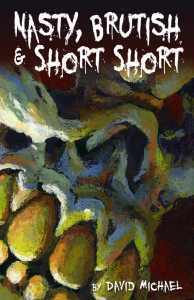
I wrote my first horror story in 2006 as part of a project I called "A Short Story a Day". Surprised me rather. Didn't know I had it in me.
By the end of the year, I had written just over 200 short stories (just over 150 if you take out the stories that later became chapters in The Summoning Fire and a yet-to-be-released novella). I only labelled 11 of those as "horror" when I wrote them. Many of the rest (just like The Summoning Fire, BTW), I didn't consider horror at all. I thought of them as "urban fantasy". Maybe "dark urban fantasy". Sometimes "speculative fiction". But not horror.
I have since been corrected.
All of the stories collected in Nasty, Brutish & Short Short were written during the A Short Story a Day project. Which is why they're flash fiction. These are the best of the darkest stories I wrote that year–whether or not I thought they were horror at the time I wrote them.
Happy reading!
-David
PS If you're curious about the A Short Story a Day project, you can learn more about that here:
A Short Story a Day: A Post Mortem
Published on December 01, 2010 09:37
November 30, 2010
Back to the Treadmill
I spent 3-4 weeks after the release of The Summoning Fire submitting the book for reviews. It was a somewhat tedious business.
I started at the beginning of a list of reviewers and book blogs and visited each one's Web page. I checked to see if the Web page was current or the blog still active. Then I had to find their review policy to see if they accepted horror novels. Then I had to find where they had hidden their contact info. Finally, I sent a request for a book review, giving the title of the book and a short summary, and offering a free copy (ebook or paperback).
And I did that over and over and over. I would reach the end of one list of reviewers and blogs, and start on another list. Eventually, I ran out of lists.
I've sent out a few review requests since "the end of major operations" in that regard. Usually because I bump into a new reviewer or blog that sounds promising (and accepts horror).
Overall, I think I did a pretty good job. I had never done anything like that before. I even improved my short description of The Summoning Fire and my query email as I went along. I've had 6-7 reviews already come in, and there are still more on the way.
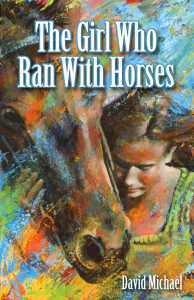 The real point of this post, though, is that I get to do all of that all over again. This time for The Girl Who Ran With Horses.
The real point of this post, though, is that I get to do all of that all over again. This time for The Girl Who Ran With Horses.On the upside, since I've done this before I'm better at it now. Somewhat improved, anyway.

Also, there are far, far more reviewers who will accept "Young Adult Contemporary Fantasy" books for review than "Horror". So I should be able to net more positive responses to my queries. This means sending out more free copies of the book, of course, but I'm cool with that. In fact, I'm looking forward to it.
Finally, it helps that I have a really good short description of the book already. Between myself and five or six other early readers, we hammered out a short description/back cover blurb. That I then improved on still more yesterday as I went around to various places announcing the book.
So, back to the treadmill. As an indie author, I can't expect anyone else to do this for me. Certainly not for what I'm willing to pay myself to do it…

-David
Published on November 30, 2010 14:23
November 29, 2010
The Girl Who Ran With Horses – Now Available!
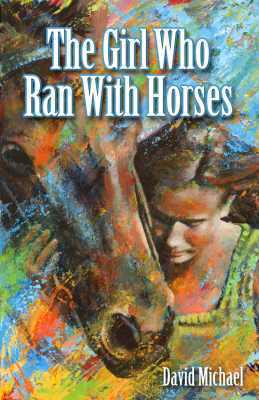
Welcome Home, Stevie!
It's summer vacation and all 13-year-old Stevie Buckbee wants is to be close to her family again and to ride her horses–especially her first horse all her own, Jack Rabbit. But past tragedies threaten her plans before the summer even begins. Even as she discovers that she is somehow able to communicate with Jack Rabbit and the other horses on the family ranch, she finds she can no longer get through to her Dad and brother Blake. And what good is it to be able to run with the horses if no matter how fast and how far she runs, everything she knows and loves is lost?
The Girl Who Ran With Horses
Available in trade paperback and ebook formats!
The Girl Who Ran With Horses Edition
Price
Trade paperback (Amazon)
$9.99
Kindle edition (Amazon)
$3.99
Nook edition (Barnes & Noble) – Coming Soon!
$3.99
Ebook (Smashwords)
$3.99
Published on November 29, 2010 08:46



